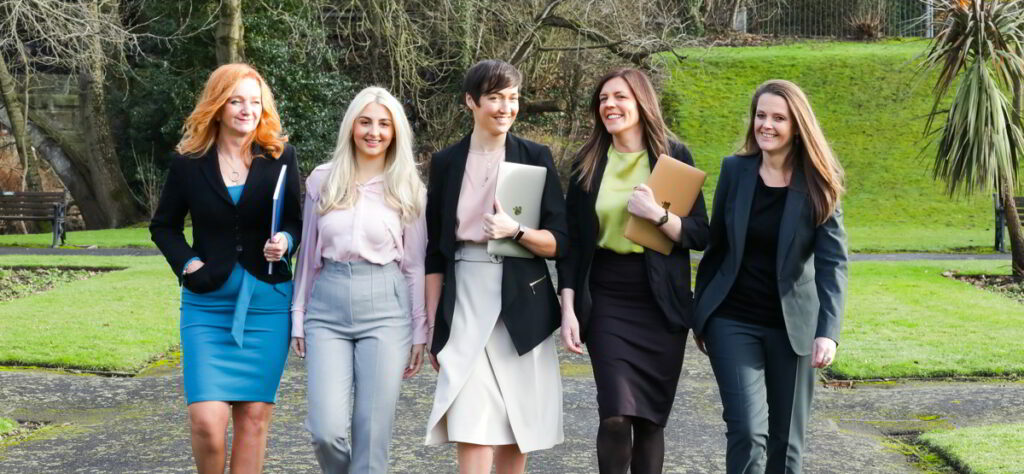Financial Settlements & Divorce
Your financial settlement is usually the final stage in the divorce process. This is where the courts make the Order regulating your settlement and can be achieved either by agreement between you and your former spouse or after a contested hearing.
Either way, once they have done so, the settlement becomes a binding ‘financial order’.
Normally, reaching the financial settlement comes as a relief to divorcing couples as typically it marks the stage of “drawing the line” enabling both parties to find closure and move on with their lives.
If you have reached this stage of thinking about a financial settlement, whether you are the husband or the wife, the wealthier or the more financially vulnerable, there are many key questions that you may need answering. Please see below the most commonly asked questions we get asked on financial settlements in a divorce.
Contact us for a free 30-minute consultation with an expert family lawyer.

Why use Sinclair Law Solicitors?
- Free 30-minute consultation so we can get to know you and your individual situation
- Jargon-free friendly service
- An expert solicitor by your side helping you through every step of the process
- Our legal service costs are unrivalled by many larger law firms in South Manchester and Cheshire
- Transparent pricing with no nasty surprises
- Authorised and regulated by the Solicitors Regulation Authority
- Rated ‘Excellent’ by our clients on Google and Review Solicitors

What our clients tell us
Divorce & Financial Settlements – Key Questions
- How much money will my former spouse be entitled to?
- How much maintenance do I need to provide for my children?
- How long does a divorce and financial settlement take?
- Could the reason for my divorce affect my financial settlement?
- As the husband, can I claim maintenance from my ex-wife?
- What happens if I/my partner starts a new relationship or remarries? Will this affect our financial settlement?
- Is it possible to settle all financial claims once and for all when I divorce?
- Will I have to go to court to get my divorce settlement approved?
- Will I be forced to give up my family home when we divorce?
- If I own a business, will those assets be included in a divorce settlement?
- What are the 4 key stages of divorce?
How much money will my former spouse be entitled to?
The courts will seek to impose a settlement that is “fair”.
“Fair” does not necessarily mean “equal”. A fair outcome will be influenced by a number of factors which the court has a duty to consider. These are known as the “Section 25 Criteria”.
But before considering the Section 25 criteria, the court will first consider the welfare of any children of the family under the age of 18.
The court’s approach to the Section 25 criteria is to compute and then distribute the parties’ available resources.
The Section 25 criteria can be summarised as follows:-
- The capital and income resources available to the parties, either existing or reasonably foreseeable.
- Details of the financial needs of the parties, including:
- Their standard of living;
- Their ages and the length of the marriage; and
- Any disabilities.
- The court will also consider the following additional factors:
- The respective contributions of each party including any contribution made by bringing up the children & looking after the family home.
- The conduct of each party (although only in exceptional cases); and
- Any benefit either party will lose as a result of the divorce (such as a spouse’s pension).
When considering the section 25 factors, different judges may be led to a range of possible solutions on identical facts, all of which would be within their judicial discretion. However, many cases have established a norm on the way the courts should approach a given set of facts.
The starting point is that assets accrued during a marriage are divided equally, and the guiding principles applied are ”equal sharing”, ”needs” and ”compensation”. The matrimonial home is always considered a matrimonial asset, so will be divided equally between the parties even if it was owned by one of them before the marriage (subject to any “contribution” argument that your spouse is likely to raise).
Importantly, the court has a discretion when reaching what it considers to be a “fair” outcome and will take all circumstances of the case into account.
To give you a better idea of how this could affect you, please see the following scenarios:
Scenario 1 – The Young Married Couple
A young married couple decide to go their separate ways and divorce after a short, child-less marriage. They each brought a similar amount of resources into their marriage and have similar earning capacity.
Result: It would not be unfair for this couple to walk away from the marriage taking with them what they brought into the marriage without paying the other any maintenance.
Scenario 2 – The Homemaker & The Husband
This couple have been married for 30 years, with the wife bringing up the married couple’s children and looking after the family home whilst the husband works in his highly paid job.
Result: A conservative financial settlement awards the wife half of the joint assets, including half her husband’s pension entitlement and a significant proportion of her husband’s income until he retires.
The court believes that this values the wife’s contribution to the marriage and the fact that she would not be able suddenly to start earning a large income.
Scenario 3 – Equal Division of Resources Is Insufficient To Meet My Needs
It is not uncommon to find that there are insufficient resources to meet needs because, putting it bluntly, it is more costly to live in two separate homes on divorce than to share one during marriage.
Result: In this case, needs are likely to dictate how capital and income are divided. Inherited assets, or assets introduced by one party during the marriage, may count for little.
However, where possible, the court tries to ensure that a party who inherited or introduced a particular asset retains it as part of the resources to meet their own needs (even if this means allocating a larger share of the matrimonial assets to the other party).
How much maintenance do I need to provide for my children?
In the vast majority of cases, the court no longer has power to make Order for child maintenance in the absence of agreement. The state, acting through the Child Maintenance Service (CMS) now has primary jurisdiction for assessing and enforcing child maintenance.
For an indication on the appropriate amount, please refer to their website, www.gov.uk/calculate-your-child-maintenance.
The court does however retain power to make assessments in the following circumstances:
- The parties agree a child maintenance order by consent.
- The order is of a prescribed type, including:
- Orders for educational expenses (school fees order – see below)
- Orders for costs attributable to a disability;
- Top-up orders; and
- Orders against a person with whom the child has his home
A school fees order can be made by consent, and in contested proceedings. Section 8(7) of the Child Support Act 1991 provides:
This section shall not prevent a court from exercising any power which it has to make a maintenance order in relation to a child if—
(a) the child is, will be or (if the order were to be made) would be receiving instruction at an educational establishment or undergoing training for a trade, profession or vocation (whether or not while in gainful employment); and
(b) the order is made solely for the purposes of requiring the person making or securing the making of periodical payments fixed by the order to meet some or all of the expenses incurred in connection with the provision of the instruction or training.
How long does a divorce and financial settlement take?
It usually takes about six months for you to obtain a divorce, which includes a six-week period from the date of the Conditional Order for divorce to the Final Order (which is the final step in obtaining a divorce).
We would not normally apply for your Final Order for divorce until a financial settlement has been reached and made into a court order.
Obtaining your financial settlement is separate from obtaining the divorce but the Divorce Application provides the legal framework within which the settlement is obtained. The length of time it takes to obtain depends upon whether an agreement is possible coupled with the complexity of your financial affairs.
Where there is an agreed financial outcome, it is possible to obtain a court order embodying the agreement and your Final Order for divorce within 6 months from start to finish.
Where agreement is not reached it could take between 12 – 18 months to conclude from the date an application to the court is made.
Could the conduct of one party to the marriage affect my financial settlement?
This is a very common question that many people ask and the answer is – only in very rare, extreme circumstances.
An example of an ‘extreme circumstance’ where it could affect a settlement may be if one partner’s violence has a lasting impact on the opposite partner’s life or there has been some kind of deliberate sabotage on the finances by one partner (i.e., destruction of assets).
The fact, for example, that your spouse has had an extra marital relationship will have no bearing on the financial outcome.
As the husband, can I claim maintenance from my ex-wife?
If the woman is the high earner, there is absolutely no reason why a man should not be able to claim maintenance. A fair settlement will take into account the same factors as mentioned above, regardless of gender.
What happens if I/my partner starts a new relationship or remarries? Will this affect our financial settlement?
This is another common question that we get asked and is best answered with the following four examples:
Example 1 – You remarry without having reached a financial settlement with your former spouse.
You may lose your right to make any financial claim against your former spouse whilst they will have the exact same right to make a financial claim against you as they did before. This is obviously something you would want to avoid. The best advice we can give you is, do not re-marry until there is a financial settlement embodied in a court order.
Example 2 – You have previously reached a clean break settlement with your former spouse.
So long as the agreement is embodied in a court order, any remarriage or cohabitation (whether it is you or your partner) will normally have no effect on your settlement.
Example 3 – You are paying your former spouse’s maintenance.
Maintenance for your former spouse automatically ends if the recipient remarries (but not if the recipient merely starts to cohabit). If there is cohabitation, that would normally entitle you as the payer to seek a reduction in the amount paid.
Example 4 – You are receiving maintenance from your former spouse and he/she remarries.
Maintenance for you should continue to be paid without any alteration.
In any of the examples listed above, if your former spouse’s financial position improves, you can apply to the court to reduce the amount you pay or, in some circumstances, to stop it altogether.
Is it possible to settle all financial claims once and for all when I divorce?
In most scenarios, yes. This is known as a “clean break”. The court is under a duty to try and achieve this wherever possible.
This kind of arrangement allows for the most certainty going forward and will allow you to take charge of your individual financial affairs. Neither you or your former spouse will be able to go back to court at any point in the future to ask for more money against the other.
Will I have to go to court to get my divorce settlement approved?
Yes, you will. If the settlement is achieved by agreement, obtaining the court’s approval can be obtained by postal application and will obviate the need for personal attendance.
If the order is made without agreement, there will be a requirement to attend court at each stage of the process. There are usually not less than three stages.
Will I be forced to give up my family home when we divorce?
It is best separating this answer into marriages without children and marriages with children.
For Marriages Without Children
When there are no children in your marriage, the situation is more straightforward with the primary aim of any divorce settlement to reach a ‘fair financial settlement’. Whether you can retain your home will depend on how many other assets you own and what your preferences would be.
For example, if you have plenty of money, you may agree with your former partner that one of you keep the house; the other will receive a large proportion of other assets. If you have fairly modest resources, you may ultimately need to sell your home so that you can each buy a smaller property.
For Marriages With Children
When there are children involved, the situation becomes much more complex and the case will turn on whether the family home is sufficient to meet the needs of the children and questions of affordability in retaining it. There is an argument for it to be sold if it too large to meet needs or it is simply not affordable.
If I own a business, will those assets be included in a divorce settlement?
If you own a business, its value (or that part of it attributable to you) will be included in a divorce settlement. It is unlikely however that you will have to realise your interest by selling it and its relevance is more likely to be an asset that provides income.
The process of getting a divorce can seem initially overwhelming and confusing. Read our simple guide which breaks down the divorce process into 4 easy-to-understand key stages.
See the main points from the latest Government divorce statistics.




